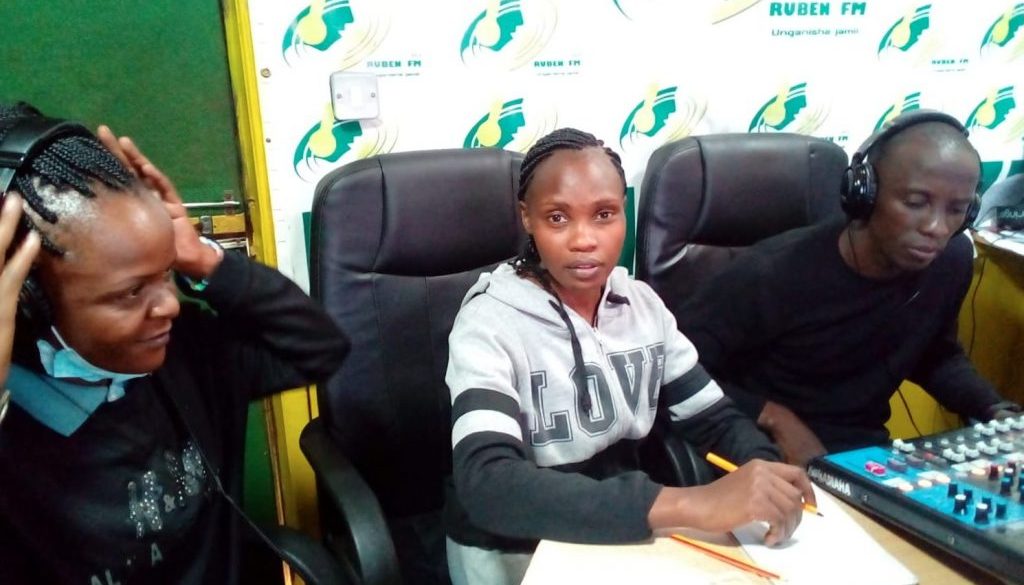Community based radios in research validation and dissemination
Caroline Kabaria, Ivy Chumo and Blessing Mberu; African Population and Health Research Center (APHRC), Kenya.
Community radio is a short-range, not-for-profit radio station or channel that caters for the information needs of people living in a particular locality, in the languages and formats that are most adapted to the local context. The radio station serve as information diffusion strategies where different actors communicate developmental information in areas such as health and wellbeing. In Kenya, it is referred to as community or participatory broadcasting initiated and controlled by members of a community of interest, or geographical community, to express their concerns, needs and aspirations without outside interference or regulation of the Independent Broadcasting Authority. Despite the knowledge on role of radio stations by health and wellbeing actors, the role in dissemination and validation of research findings in informal settlements is still underexplored and underutilized.
ARISE explored using community radio stations for a wider reach in the validation and dissemination of research findings in Korogocho and Viwandani informal settlements, Nairobi, Kenya. Once researchers and co-researchers had completed mapping social and governance terrain activities – community profiling, social mapping, ground-truthing, and governance diaries – we planned to co-validate and co-disseminate the findings to the community and sought for advice on the subsequent work packages.
To start with, the radio presenter introduced us (researchers and co-researchers) as the guests for the session and encouraged the audience to listen and seek clarification after our presentations. We presented the main objective of ARISE project seeking to enhance accountability and improve the health and wellbeing of marginalized populations living and working in informal urban settlements in low- and middle-income countries. We also presented the project vision of aiming to catalyse a step change in approaches to improving accountability and promoting the wellbeing and health of marginalised people living and working in informal urban settlements. Further, we described the project activities involving data collection and participatory activities with communities and community actors in the attempt to develop interdisciplinary metrics that explore intersecting inequities. Lastly, we presented in-depth findings of mapping social and governance terrain including drivers of inequities, governance actors, marginalized and vulnerable groups, health and wellbeing priorities and social accountability mechanisms among others.
Dialogue and discussions followed our presentations, moderated by community radio host. The session was remarkably interesting, with citizens calling in to recognize us, seek further clarification, appreciating our work and airing out their thoughts, recommendations and concerns about our work in the community in general. It was a highly informative session for us since we learnt about different solutions from a broader range of audience. One thing was clear, in that the people’s voices needed much more amplification because they were feeling muffled by monopolistic and illegal service providers. The community audience also spoke passionately of the need for public participation to educate the community on social accountability mechanisms for improved health and wellbeing.
We accomplished our objective because the community audience were delighted to understand that the project phases and recommendation will catalyse a step change and empower slum residents to demand for services at three levels (macro-level, meso-level and micro-level). At the macro-level, empowerment will focus on the need for social accountability from institutions and policies affecting all citizens. At the meso-level, empowerment will focus on the need for social accountability in slum specific policies; policies such as those for migration and community engagement. Finally, micro-level empowerment will focus on the need for social accountability or interventions targeted at specific problems such as public health, upgrading environment, and health education. A step change on the three levels of social accountability when attained will promote equity in urban slums.
From our experiences, we conclude that there is need for greater participation of marginalized and vulnerable populations on accountability and equity dialogues for improved health and wellbeing. Promoting communication media such as community-based radio programmes on/for marginalized and vulnerable populations will facilitate access to important information and give a voice to the traditionally voiceless people living and working in informal settlements. In addition, radio stations can be an avenue to voice issues that affect equitable health and wellbeing from the domestic and marginalized life into the outside world.
